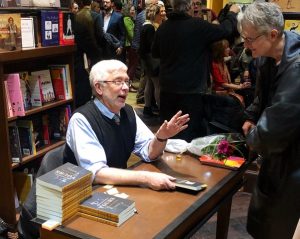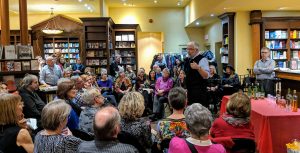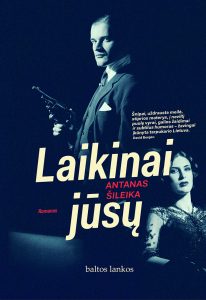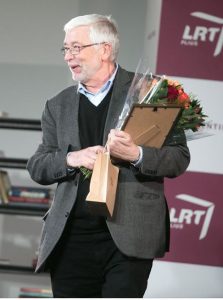Here is the poster for the Lithuanian movie adaptation of my novel, Provisionally Yours known as Laikinai jūsų in translation. And below that you’ll find a link to the trailer as well as a few pics. The premiere in Vilnius on November 23, 2023 was a blast! We’ll see if it can get over here next year.

The trailer is here:



*******************************************************************
Provisionally Yours, will also be adapted in an 8-part TV serial in the spring of 2024. Here is a Lithuanian language newspaper article about it.
Below is a photo of me with the actors and crew on location in the spring of 2023. The director in white is Ramūnas Rudokas and the lead, Simonas Storpirštis, stands beside me. I wish I’d thought to ask after the other names, but it was all in a whirl. See a few more photos on the photos page.


**************************************
In December of 2023 I spent a week in Rome helping my publisher, Del Vecchio Editore, to promote the Italian translation of my 2011 novel, Underground, about anti-Soviet resistance in postwat Lithuania. Becauae of the ongoing war between Russia and Ukraine, interest was intense and the questions at various events were piecing both in Italian and in English, in Rome and in Naples.


**************************************************
My latest novel, Some Unfinished Business was published by Cormorant Books in February of 2023. I am very pleased indeed.
I received a wonderfully supportive description of the work in the introduction to an interview I did with Open Book.

Some Unfinished Business is a novel based on historical events that tell the story of a rhyming assassin, underground resistance, and precarious love in the Soviet Union of the postwar era.

************************************
Here is a link to my most recent audio book review on Shelagh Rogers’s CBC Radio 1 show, The Next Chapter. I have reviewed Marius Kociejowski before, and I thought I’d had enough, but this erudite bookseller with a love for culture has an eye for eccentrics who are more interesting than the mainstream.
***********************************
A Chinese translation of Woman in Bronze, originally published in 2011, has just appeared .

**************************************
I was in Europe for much of the spring and summer of 2022. I had a few literary readings in Lithuania and in May I toured the translation of Buying on Time in Italy, translated as Tempus Fugit. Here is a link to some of the events.
I have just signed with the wonderful Italian house that did Tempus Fugit, Del Vecchio Editore, in order to have them bring out a translation of Underground in 2023.
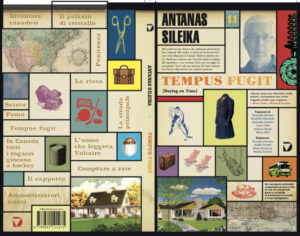
*********************************
And in the meantime, here is a nice Lithuanian language profile of me that just ran on LRT TV. I’m on at about minute 2:20 and you may need to turn on sound.
